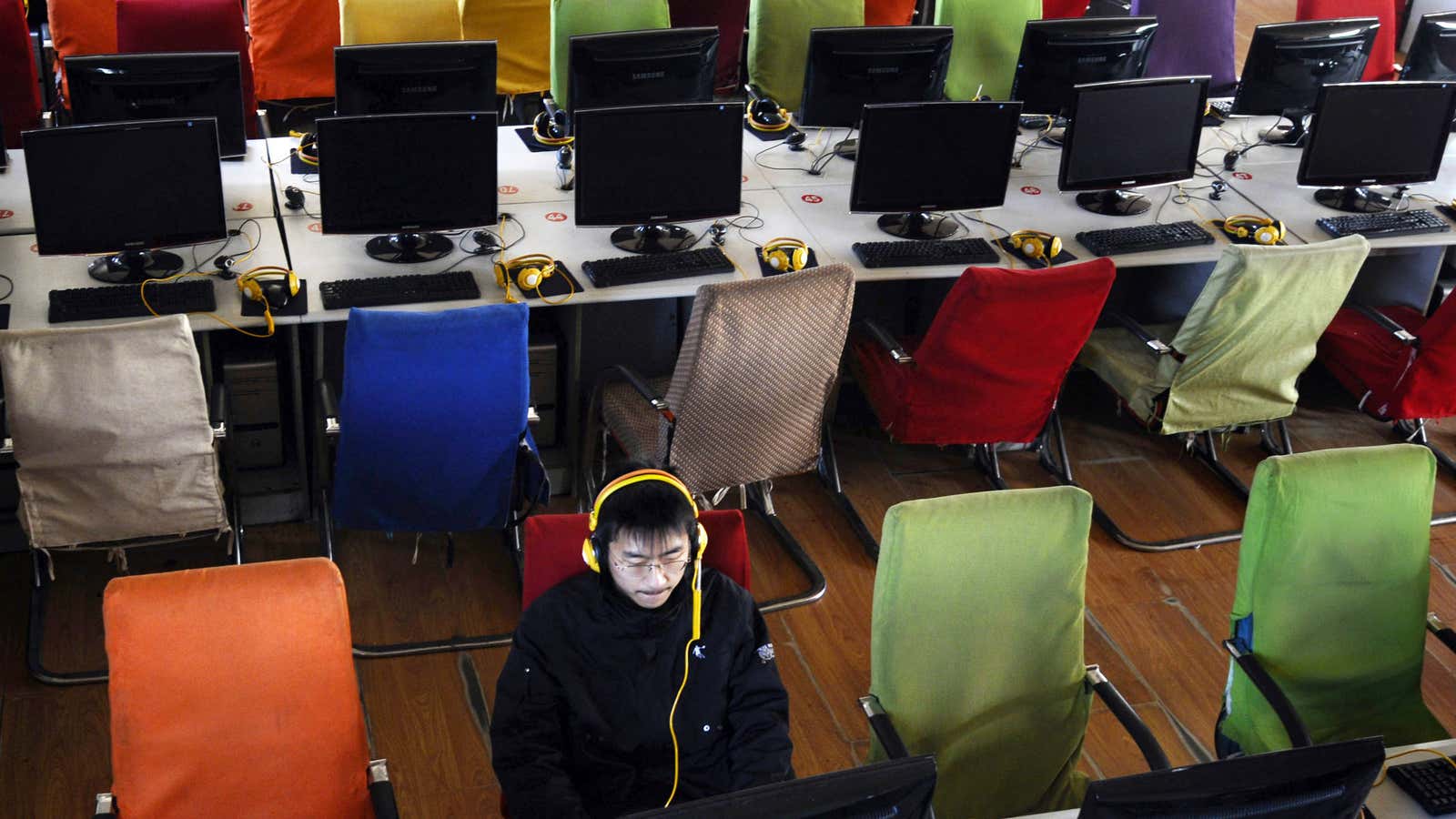When China hosts the country’s very first “World Internet Conference” this week in the city of Wuzhen, speakers will include top executives from China’s internet giants like Alibaba, Tencent, and Baidu, along with executives from ”Qualcomm, Microsoft and Samsung,” Xinhua reports. The conference is expecting “1,000 participants,” China Daily reports, and “almost 700 journalists from the world.”
But the guest list from beyond China’s borders is pretty thin—speakers include only two non-Chinese internet executives, one from Qualcomm and one from LinkedIn, as well as a handful of foreign academics and trade groups, and a current and former representative from the internet oversight group ICANN.
It’s an approach that reflects Beijing’s increasing determination to go it alone when it comes to the Internet, especially by fortifying its vast online censorship machine. The Great Firewall, as it’s known, blocks hundreds of thousands of websites, and employs millions of government workers who scrub the internet clean of references to anything Communist Party leaders find objectionable—from questions about China’s human rights record to Vladimir Putin’s latest antics.
Just a week before the conference, China blocked thousands of websites that use EdgeCast, a content delivery network owned by Verizon, according to the Chinese anti-censorship Greatfire.org, including sites used by Sony, Firefox, and Quartz’s corporate sibling, The Atlantic. Funnily enough, internet access at the conference itself is uncensored:
The dictates of the Great Firewall and the protectionist impulses of Beijing have made it impossible for internet giants like Facebook and Google to gain access to the world’s largest online market, and have increasingly made it uncomfortable for companies that have managed to maintain a foothold—including Qualcomm, which faces a Chinese antitrust investigation; LinkedIn, which is facing criticism for its Beijing-friendly censorship policies; and Apple, which has hit a series of roadblocks as it tries to roll out products like the new iPhone 6 and services like Apple Pay.
The conference seems to be “somewhat hastily planned,” Forbes noted, with invitations sent out just a month beforehand—not much lead time for in-demand executives of global companies to schedule a trip to Wuzhen. Maybe next time, there will be more advance planning.
“China clearly wants more power when it comes to determining world standards governing the Internet, but China sees the Internet very differently from the U.S.” CM Research’s Cyrus Mewawalla told Bloomberg. The official heading the conference, Lu Wei, the country’s minister of cyberspace administration, has spoken recently about the need for more global regulation of the internet—but notions he might have about cooperation aren’t going to be helped by the fact that most of the internet’s biggest players aren’t showing up.
